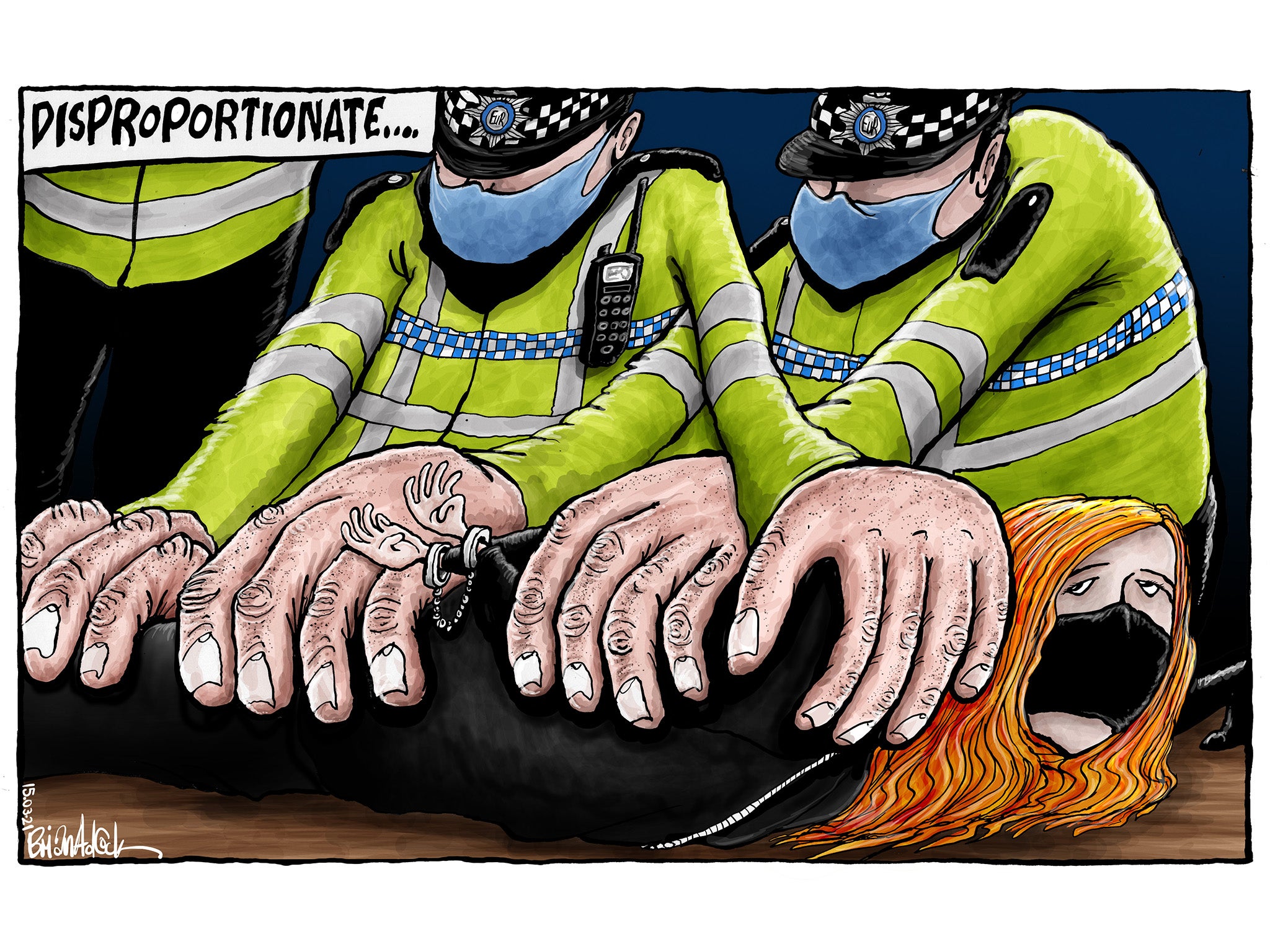Women are treated differently from men – even while holding a vigil
Editorial: People have the right to ask why this public gathering of women, which was not a protest, should have been met with such a heavy-handed police response

There is, at the heart of the overwhelming public reaction to the shocking murder of Sarah Everard, a colossal sense of unfairness. Why should women be frightened to walk home alone when men are not? Why should women be harassed in the street when men are not?
And now, after the awful scenes on Saturday night on Clapham Common, people have the right to ask why this public gathering of women, which was not a protest, should have been met with such a heavy-handed police response?
Whatever one’s view of the throwing of a statue of a slave trader into a river in Bristol, it is no disrespect to the cause, or the people who did it, to state as a matter of fact that it was an act of public disorder, which the police stood back and watched.
But women gathering at a bandstand on Clapham Common, to hold a vigil for a murdered woman, a vigil that had earlier in the day been attended by the wife of the future king, evidently crossed a line.
Read more: Woman pictured being held on ground by police at Sarah Everard vigil wants to meet Cressida Dick
There are some ameliorating factors. There have been, since then, new laws passed to deal with the exceptional challenges of protest when all human contact is essentially illegal. The police have already claimed they were merely enforcing them.
In the broader sense, there are no simple policy solutions to the entirely legitimate sense of injustice felt by women. No society can hope to eradicate murder and sexual violence, so none, in turn, can possibly eradicate the fear of being its victim. To make all women feel safe walking alone at night is not something any government can achieve.
But there is an entire spectrum beneath it. Why do rape and sexual assault carry such low conviction rates? Why is so little resource spent on domestic violence, on assisting women who are all but tortured in their own home? Why is there no punishment for men who catcall women on the streets? It is scarcely even frowned upon by those who witness it.
Read more: What are the new powers to ‘manage’ protests in the police bill?
This burning sense of injustice must be addressed. And to add to it now, it is a statement of fact that men, for the most part, can break every lockdown rule in the book to gather outside Ibrox or Anfield and celebrate their football team’s achievement and benefit from the kind of sane, sensible, restrained policing that was, frankly, the only option in the circumstances. But women cannot. And on the current available evidence, it is only women who cannot.
Unsurprisingly, there have already been calls for the resignation of the Metropolitan Police commissioner. Others have cited heavy-handed new guidance for protest in the age of Covid, which has come from the Home Office. It is glib but nevertheless significant to point out that the Met commissioner and the home secretary are among the two most prominent women in public life.
Priti Patel, of course, will not resign. Should Cressida Dick be forced to, it is not altogether straightforward to see how it will advance the cause of feminism, or do anything to address the causes of the anger that have been laid bare in public with such blinding clarity over the past week.
But things, it is clear, have to change.